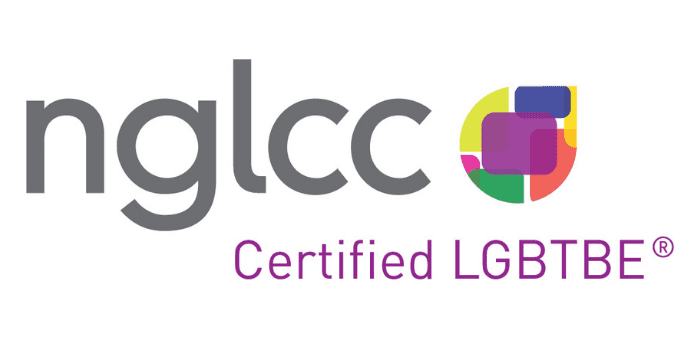At Full Spectrum Therapy, we offer individual counseling, relationship counseling, family counseling and, yes, sex therapy.
Most of our clients are in the LGBTQ+ community and look to us to provide a safe space to discuss some of the most intimate parts of their lives. Just like heteros, queers come to our clinic with all sorts of sexual hangups, problems, traumas and puzzles.
Our clinicians walk alongside clients through it all.
But before the first session, folks usually have questions for our clinicians.
What even is sex therapy? What can it do for me? What happens in a sex therapy sesh?
Today, we’ll look at the top four questions clients have when they are looking into sex therapy in Portland Oregon, since that’s where we’re located. It’s fair to say, though, that these questions probably apply to potential sex therapy clients across the country.
Let’s dive in!
Will a sex therapist, um, touch me or my partner?
Absolutely not.
(And don’t be embarrassed if you weren’t sure about this. This is probably the number one question we get from folks.)
Sex therapy is essentially the same as any psychotherapy session, just with an emphasis on sexual health, functioning and wellbeing. Clinicians who do sex therapy are mental health professionals, not sex workers.
In terms of therapeutic sexual services, you may be thinking of sexual surrogacy, which is a completely different field. Unlike sex therapists, sexual surrogates do practice physical intimacy with clients.
Sex therapists, on the other hand, take a purely psychotherapeutic approach. No touching involved.
Ok, then what happens in an LGBTQ+ affirming sex therapy session?
Great question. Here’s what you will be doing in sex therapy:
Talking!
Sharing feelings!
Healing from trauma (if applicable)
Learning healthy coping strategies
Learning new communication skills
Brushing up on negotiation skills
Learning mindfulness techniques
Exploring underlying mental health concerns
Getting to know yourself, your body and your turn ons better
Embracing acceptance for yourself and your body
Unlearning sex negative messages
You can do sex therapy as an individual or as a couple (or group, if you have multiple partners). If your partner isn’t willing to come to sessions, you can still benefit from doing sex therapy alone. Your sex therapist should work to create a welcoming environment for your partner should they change their mind and want to join after you get started.
How much information is too much information with an LGBTQ+ affirming sex therapist?
Good news: there is no such thing as TMI in a sex therapy session.
This can make some folks feel liberated and other folks feel terrified. Always remember: you get to choose what you share in session! It’s your session.
Sex therapists might ask you questions about nearly everything having to do with your sex life, depending on the situation, including:
Your gender identity
Your sexual identity
Your masturbation habits
Your fantasies
What you want to change in your sex life
Traumatic experiences
Medical conditions
How you flirt and show affection
Relationship issues
Family dynamics
Your relationship with your body
Can an LGBTQ+ affirming sex therapist help with...?
Probably, yes. Our sex therapists work with folks struggling with a wide range of issues in their sexual wellbeing.
Here’s just a few types of clients we see in sex therapy sessions:
Trauma survivors
Folks who feel disconnected from their bodies
Folks who feel pain with sexual touch
Folks with gender dysphoria
Folks with negative body image
Folks struggling with disability-related intimacy issues
Couples dealing with the fallout of infidelity
Couples struggling with infertility
Folks with unwanted or disruptive porn habits
Folks who feel uncomfortable with their fantasies or sexual identity
Couples seeking more intimacy in long term relationships
Couples struggling with mismatched libidos
Folks who want to reconnect with their sexuality
Folks who are dealing with premature ejaculation or erectile dysfunction
And lots more
Is sex therapy an alternative to drugs for erectile dysfunction or other medical conditions?
Your sex therapist will always work with you to determine if there are any underlying medical causes that you may need to get treated outside of therapy. Depending on the situation, sex therapy can be a wonderful compliment - but not necessarily a replacement for - medical treatment.
Erectile dysfunction (ED) and mood disorders can severely impact sexual wellbeing. There are many medical conditions and medications that can impact libido.
Folks undergoing hormone replacement therapy (HRT) and/or gender affirmation surgery (GAS) also can experience changes in sexual functioning. If you’re undergoing medical transition, a sex therapist can help you adapt to your changing body and help your partner (or partners) as they navigate the experience, as well.
Couples navigating a partner transition together often find couple’s sex therapy hugely beneficial. Sex therapy sessions are a safe space to process the changes, challenges (and, yes, opportunities!) that most couples face during a partner transition together.
Whatever your condition or medical situation, a sex therapist can work with you where you’re at to build a deeper connection to self and sexuality.
Want LGBTQ+ sex therapy by queers for queers? We’re here to help you out, Portland
No matter what sexual issues you’re facing, we’re here to help you out. Nothing is too “weird” for us—we’ve heard it all.
If you’re curious about whether or not one of our sex therapists might be a good fit, head over to our “Meet the Team” page. You are always welcome to schedule a phone call with one of our therapists to discuss what you’re looking for and see if you want to move forward. Contact us today!






